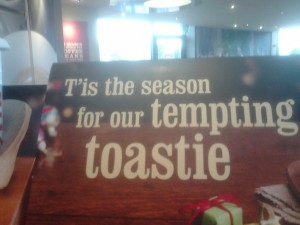The tragic events in France have once again shown the difficulties reporters have in knowing how to pronounce the names of the places involved. Obviously, they have rather more important things on their minds, but when names are constantly repeated, you would think that at some point they would have a few seconds to check with either a local – if they’re at the place itself, or with experts back at base (in the BBC’s case, of course, the Pronunciation Unit – and why, by the way, have they dropped the word “Research” from their title?)
Alec Bamford, an avid reader of this blog, has sent me the following:
“Amid the desperate ad-libbing by talking heads who knew no more than the average viewer, the attempts by various BBC personnel to pronounce Dammartin-en-Goële provided some interest. At least it kept changing which is more than can be said for the repetitious waffling. We had a variety of mid central simple vowels, one ‘goal’, Lyse Doucet, who is Canadian and should have known better, came up with Dammartin-en-Gueule which does not sound appetising, but the winner must be Kasia Madera. Despite getting a 2:1 in French (or so Wikipedia tells me), she decided, correctly, it was bi-syllabic. And pronounced ‘Go-hell’. With a [h], would you believe.”
Villers-Cotterêts was another one ripe for mispronunciation: ‘as any fule kno’ final -er in French is pronounced /e/ (the first verbs we learn are the -er class). But this time it isn’t just English learners who can be tripped up: many French people are uncertain about final -er in proper names. My late wife, when a student in France (before she met me) had a boy friend whose name was Roger Maler. While Roger is /rɔʒe/, Maler is pronounced /malɛːr/. What makes this doubly confusing is that at home the Maler family spoke Catalan, and in Catalan, the name is pronounced /male/… Anyway, there are several places in France containing the word Villers in their names, and in every case, it is pronounced /vilɛːr/.

